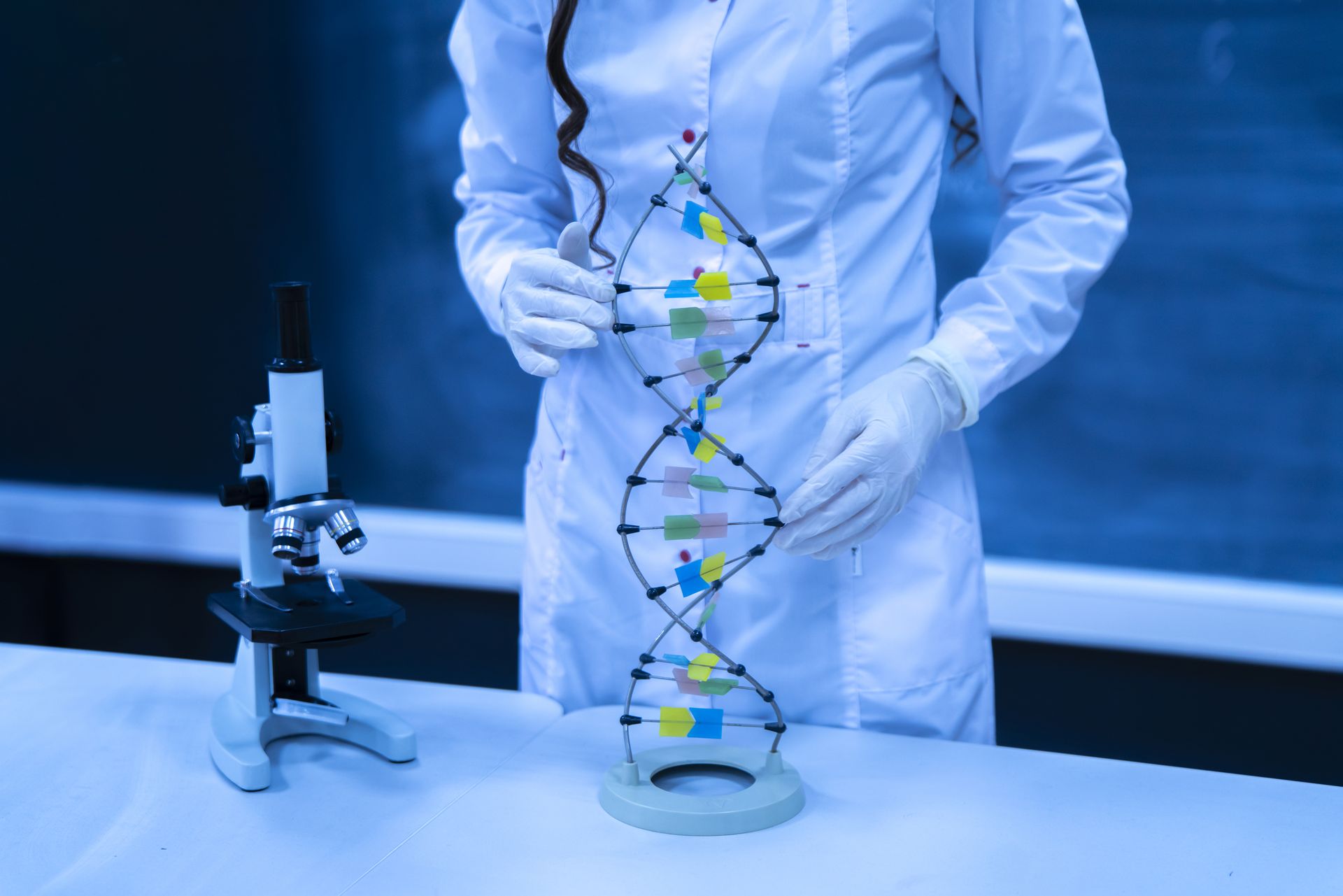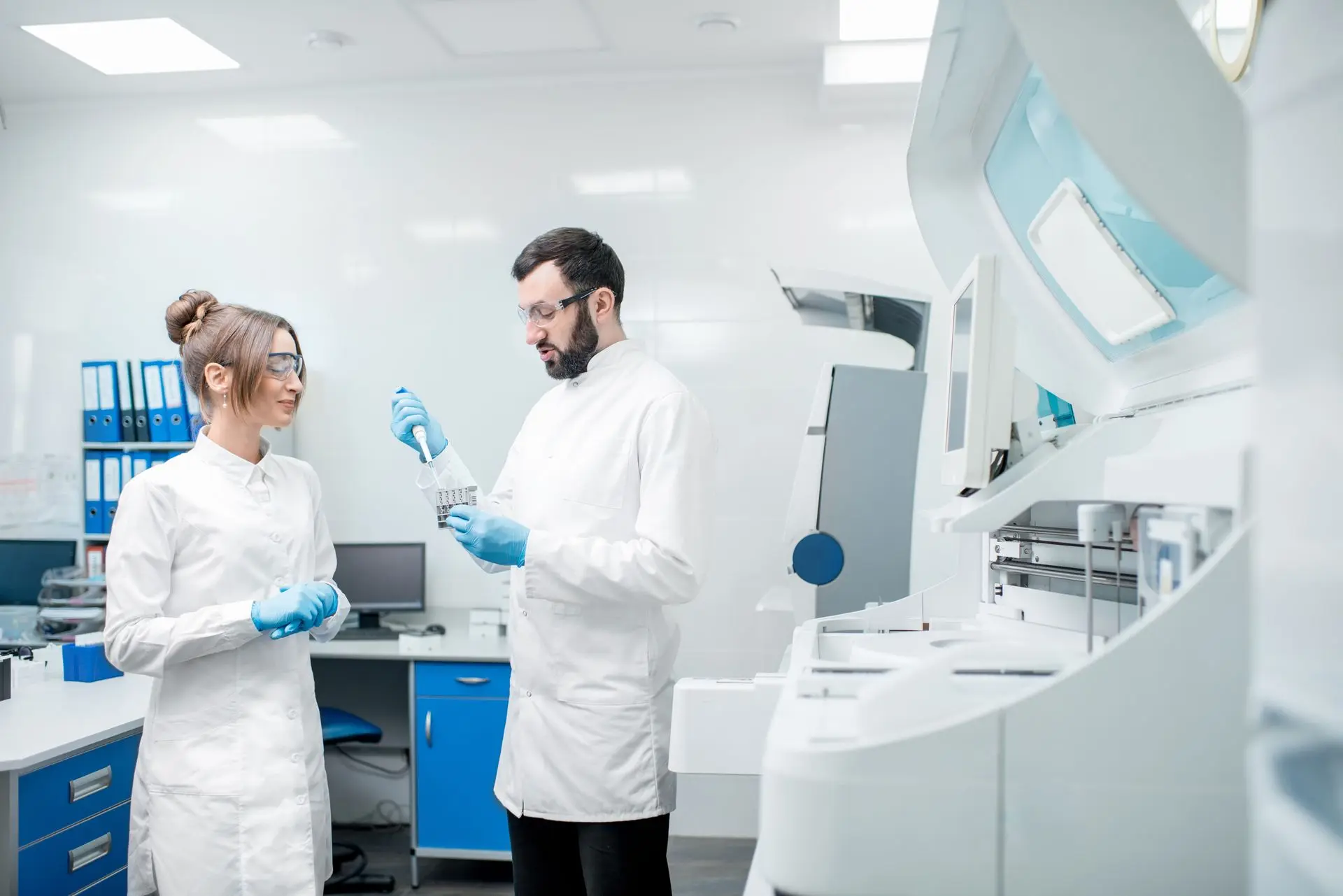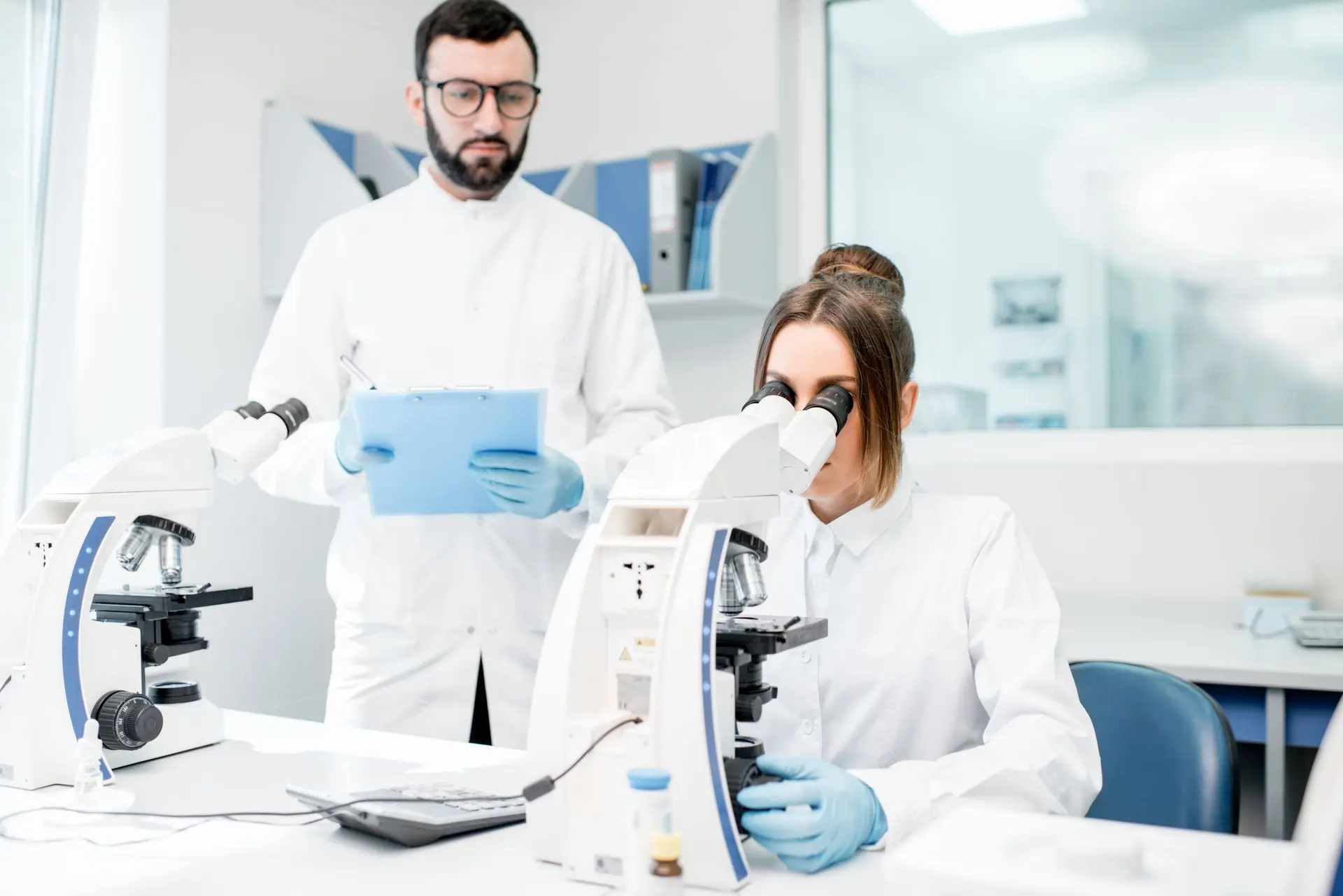What is PROTEOMICS?
The word "PROTEOMICS" might come from the word "GENOMICS." Genome is a gene set which contains the total genetic information of a biological species and in molecular level, it is a set of very long DNA chains. By the study of genome (GENOMICS), full DNA sequence of several biological species including human has been determined.
Under these circumstances, the focus of life science is moving from genome to proteins, which are biologically synthesized from genome. Where are the sites of DNA which actually work as the templates of polypeptide? How do the constructed proteins work in cells? How do the proteins assemble to form complexes with multiple functions? These points will be studied for all the proteins synthesized in a cell (At present, the number of polypeptides synthesized in human cells is estimated to be about thirty thousand.). This line of study, aiming to clarify the structure and function of all the proteins of a biological species to reconstruct the total biological function of the life, is called "PROTEOMICS."
Analysis of human genome has almost been accomplished by international collaboration within these ten years. Analysis of human proteins will not be accomplished in the next ten years. However, since there are people who think proteomic studies will make money, a huge amount of money will be spent to buy hundreds of (thousands of) apparatus for systematic analysis of protein structure and function. We must be aware that the establishment of these studies must be applied for the survival of all the biological species and that this century must be a turning point from "earth for human" to "earth for life."
Background
At the turn of 2001, it was announced that the human genome had been sequenced and that this was the beginning of a new era for biological research. Essentially what had been done was to determine the order of the four building blocks (nucleotides) that are joined together to form the pairs of DNA chains called the chromosomes. Humans have 46 of these, half of which a person receives from the mother, the other half from the father. This is virtually all of the information that is handed down from one generation to the next and is essentially the book of building plans for all proteins and how these are should be put together to make our organs and tissues. The genome centres have determined the order of the billions of nucleotides (called A, C, G and T) and written this down. Theoretically we should now be able to read the building book of life, since the nucleotides are grouped into 'pages' that contain all the information needed to construct a specific protein. Currently estimates of the number of pages range between 30,000 and 40,000. These pages are called genes and are photocopied (transcribed) and the photocopies (mRNA) are transported from the cells library (the nucleus where all the chromosomes are stored) to the protein-building factory (the ribosome). Here the instructions in the photocopies are used to build proteins (translation).






